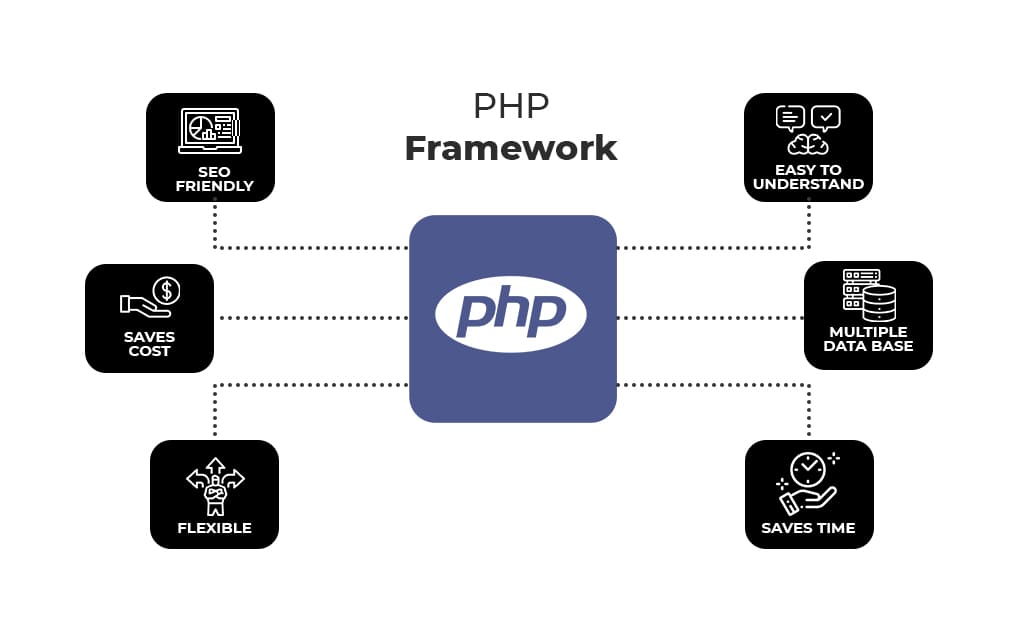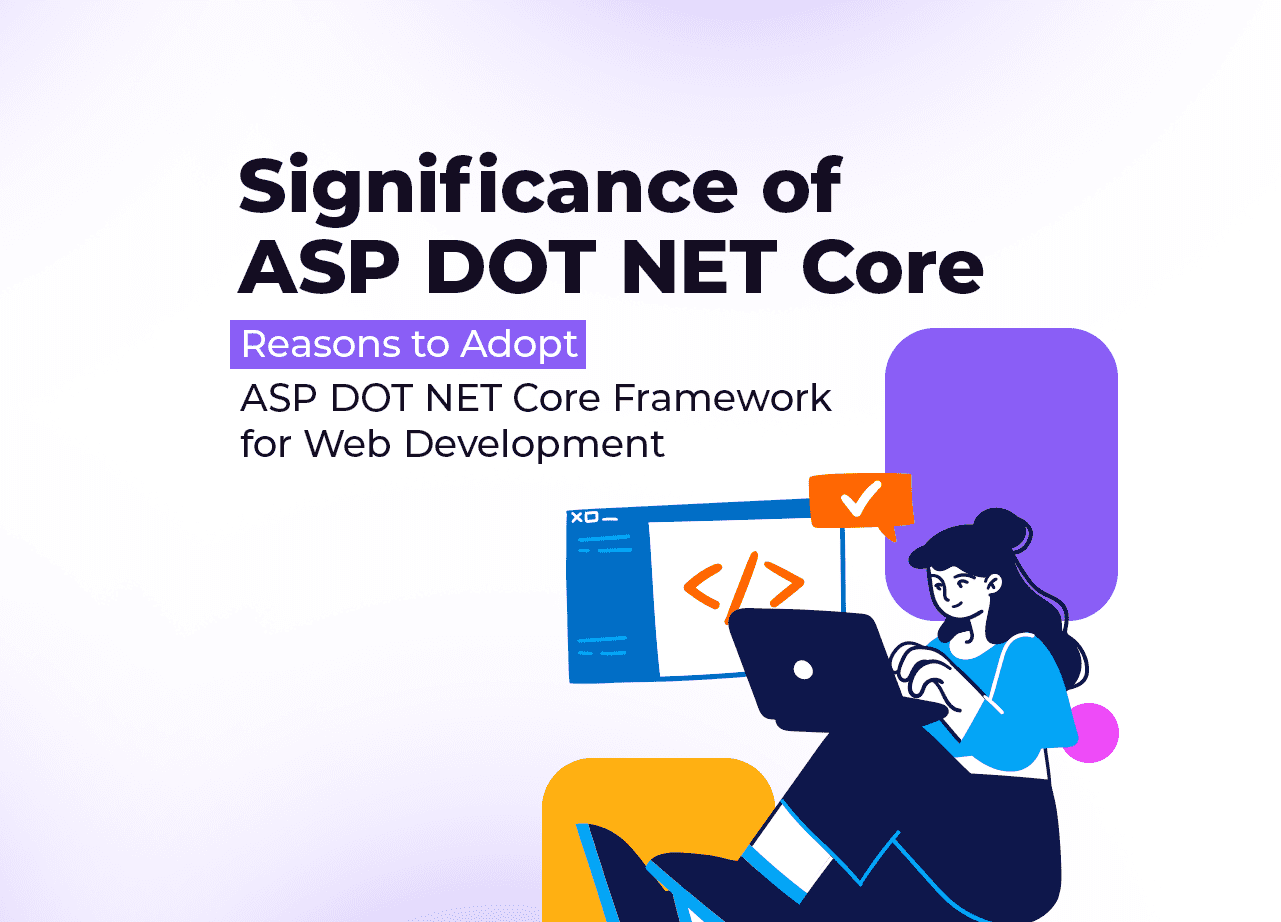PHP was created by Rasmus Lerdorf in 1994 as a set of Common Gateway Interface (CGI) scripts to track visitors to his personal website. Over time, Lerdorf added more functionality to PHP, and it evolved into a server-side scripting language that could be used to build dynamic websites and web applications.
PHP’s popularity continued to grow, and with the release of PHP 4 in 2000, it became a more mature and stable language. PHP 4 included many new features, including support for object-oriented programming, and it became the most widely used server-side scripting language for building dynamic web applications.
There are many PHP frameworks available, each with its own strengths and weaknesses. In this blog post, we’ll take a look at some of the most popular PHP frameworks and help you decide which one might be right for your next project.
Hire top PHP Developers in less than two days
Table of Contents
ToggleWhat is a PHP Framework?
In simple words, a PHP framework is a collection of pre-written code that makes it easier for developers to build web applications by providing a structured and standardized way to develop software.
A PHP framework can be thought of as a set of tools and guidelines that help developers write code more efficiently and effectively. It provides a foundation of code that can be reused across different projects, saving time and effort.
PHP frameworks are designed to help developers overcome the challenges of building complex web applications, by providing a standardized way to handle tasks such as database access, user authentication, and session management.
PHP Framework Features
Routing and URL handling: The framework provides a way to map URLs to specific controllers and actions in the application.
Database access: The framework provides a way to interact with databases using an ORM (Object-Relational Mapping) layer, making it easier to work with data.
Templating: The framework provides a way to separate the presentation layer from the logic layer, using templates that can be reused across the application.
Security: The framework provides features such as input validation, output escaping, and authentication to help developers build secure applications.
Testing: The framework provides tools and libraries for testing code, making it easier to write and maintain high-quality code.
Top 7 PHP Frameworks you should know about
Laravel – A full-featured framework for web application development, including features like routing, ORM, MVC architecture, and more.
Symfony – A flexible framework that emphasizes modularity, allowing developers to pick and choose components to use in their projects.
CodeIgniter – A lightweight framework designed for rapid development, with a small footprint and simple syntax.
Yii – A high-performance framework that emphasizes security and extensibility, with features like caching, authentication, and more.
CakePHP – A framework that follows the “convention over configuration” approach, with built-in features for scaffolding, authentication, and more
Zend Framework – A modular framework that emphasizes loose coupling and allows developers to use only the components they need.
Phalcon – A high-performance framework that’s implemented as a C extension, providing fast execution times and low resource usage.

Why Use a PHP Framework?
Speed up development: A PHP framework can help you build applications faster, thanks to the pre-built components and libraries that provide a solid foundation for your project.
Improved code quality: Frameworks can help enforce best practices and coding standards, leading to cleaner, more maintainable code.
Easier maintenance: Frameworks often include built-in tools for debugging and testing, making it easier to maintain and update your code.
Scalability: Frameworks provide a modular architecture, allowing you to easily add new features and scale your application as your needs evolve.
Better security: Frameworks often include security features like input validation, SQL injection prevention, and cross-site scripting (XSS) protection, helping to keep your application secure.
Community support: Frameworks are often backed by large and active communities, providing resources, documentation, and support for developers.
Code reusability: Frameworks provide pre-built components and libraries that can be reused across multiple projects, saving time and effort.
Flexibility: Frameworks can be tailored to your specific needs and requirements, with the ability to add or remove components as needed.
Improved collaboration: Using a framework can help teams work more efficiently and collaboratively, with a shared codebase and consistent development practices.
Reduced costs: By using a PHP framework, you can save time and effort, resulting in reduced development costs and a faster time to market.
Points to consider when choosing the best PHP framework for your business:
Choosing the right PHP framework for a project can be a critical decision that can affect the overall success of the project. To make the right choice, it is essential to consider a few key factors such as the project’s requirements, team expertise, community support, scalability, and security.
Purpose and Requirements: The first step is to identify the purpose of your application and the requirements needed to accomplish it. This will help you narrow down your search to frameworks that cater to your needs.
Popularity and Community: The popularity of a PHP framework is important as it indicates its level of support, stability, and resources available. A popular framework will have a large community of developers who can provide support, tutorials, and plugins.
Security: Security is a crucial factor in choosing a PHP framework, especially if your application involves sensitive data. Look for frameworks with built-in security features such as CSRF protection, XSS protection, and input validation.
Scalability: Choose a PHP framework that can easily scale with your business needs. A scalable framework will allow you to add more features and functionality as your business grows without compromising performance.
Performance: Performance is a key consideration for any web application. Choose a framework that has a good balance between performance and functionality, and consider frameworks that use caching and optimization techniques to improve performance.
Documentation: Good documentation is essential for efficient development and maintenance. Choose a framework that has comprehensive and up-to-date documentation, including tutorials, API references, and code examples.
Flexibility: Choose a PHP framework that offers flexibility in terms of coding standards, development approach, and project structure. This will allow you to customize the framework to fit your specific needs and preferences.
Ease of Use: A user-friendly PHP framework can save development time and reduce the learning curve for new developers. Choose a framework that has a clear and intuitive API, easy-to-use syntax, and built-in tools for debugging and testing.
Licensing: Consider the licensing terms of the PHP framework you choose, as it can affect the cost of development and distribution of your application.
Compatibility: Make sure that the PHP framework you choose is compatible with your development environment, hosting platform, and third-party libraries or services that you plan to use in your application.
Overall, there is no one-size-fits-all answer when it comes to choosing the right PHP framework. The best approach is to carefully evaluate your project’s specific needs and requirements, team expertise, community support, scalability, and security before making a decision.
At communication crafts, we ensure that your PHP application is developed efficiently and effectively, saving you time and money in the long run.
As a leading PHP development company, with a group of expert designers and developers, we have a track record of producing high-quality apps that are tailored to the particular requirements of organizations.
 Blog Communication Crafts
Blog Communication Crafts





